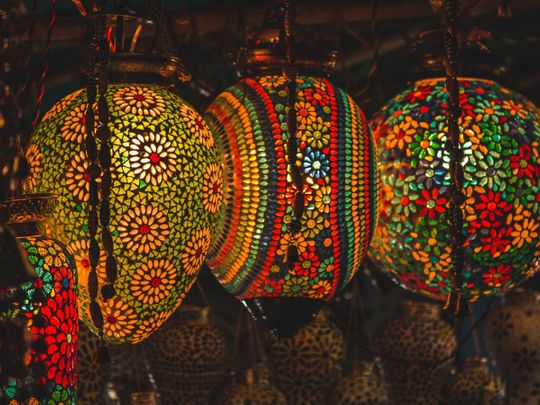
Dubai: The first day of Ramadan is traditionally marked by the sighting of the crescent moon with the naked eye, and is the ninth month of the Islamic calendar. The UAE moon-sighting committee is set to confirm the date on Sunday, April 12, and it is expected to start on April 13, Tuesday.
For those who don't fast, it is necessary to know and follow certain etiquette guidelines when around people who are fasting. This is addition to the COVID-19 preventive guidelines announced by authorities.
1. No eating, drinking or smoking in public
Do not eat, drink or smoke in public during fasting hours. This applies to all public places, and public and private transportation. This rule applies to all, regardless of one's religion, as a mark of respect and consideration to those who may be fasting.
For dine-in and takeaway, restaurants will be open and serving food. Dubai Municipality has directed all restaurants, cafes, shisha cafes and hotels facilities to close by 4am, with final orders at 3am, during the month of Ramadan. This year, Dubai and Abu Dhabi have announced that dining areas will not need a screen during fasting hours.
2. No revealing clothes
Visitors should refrain from wearing revealing clothing, especially during Ramadan out of respect to those observing the fast. This is particularly important when visiting malls, hotels and restaurants in the evening. As a general rule, clothing that is sheer, too short, low-cut or tight-fitting should be avoided, particularly shorts, mini-skirts and sleeveless tops.
3. Work etiquette
Businesses should respect the shorter office hours and work around them, especially now that we are working from home. It's easier to have a longer day when staff are working from home, but the shorter working hours should still be respected.
4. Scheduling food and entertainment
Be flexible with your food and entertainment plans. Avoid unnecessary travel within an hour of sunset, as traffic will be heavy and accident rates tend to peak. Avoid making dinner reservations around that time, as most restaurants will be busy preparing or serving iftar. There are no iftar tents this time around due to COVID-19 protocols and large gatherings are not allowed at home or outside.
Iftar and Suhoor should be shared only by relatives living in the same house, Dubai Supreme Committee of Crisis and Disaster Management said on Sunday.
5. Avoid public display of affection
Public display of affection is generally considered indecent and more so during Ramadan.
6. Ramadan markets and shopping
One of the best things about Ramadan here are night markets and pop-up souks that are great community events to be at. With food, traditional souvenirs, lots of shopping opportunities and more, these markets are a lot of fun.
However, ensure that you adhere to COVID-19 protocols of social distancing and wearing face masks. Staying safe is everyone's responsibility and following preventive guidelines is key to safeguarding everyone including yourself. Dubai authorities added that elderly people and those with chronic diseases are advised to avoid family visits and social gatherings.
7. Be charitable and friendly
Ramadan is a time of gratitude and charity, and it won't hurt to be part of it in some way, however small. Due to COVID-19 protocols this year, donation or charity tents are not allowed. However, people can donate digitally through approved charity organisations in the UAE.








